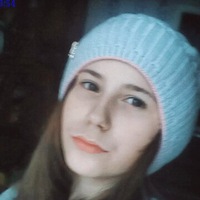
Конденсатору колебательного контура был сообщен заряд 0,2 мКл, после чего в контуре возникли
свободные колебания. Какое кол-во теплоты выделится на активном сопротивлении контура к тому моменту когда колебания полностью прекратятся. Конденсатор плоский площадь обкладки Sрасстояние между обкладками 1,5 мм диэлектрик слюда с диэлектр. проницаемостью 6. 0
0
 0
0
Ответы на вопрос
 Внимание! Ответы на вопросы дают живые люди. Они могут содержать ошибочную информацию, заблуждения, а также ответы могут быть сгенерированы нейросетями. Будьте внимательны. Если вы уверены, что ответ неверный, нажмите кнопку "Пожаловаться" под ответом.
Внимание! Ответы на вопросы дают живые люди. Они могут содержать ошибочную информацию, заблуждения, а также ответы могут быть сгенерированы нейросетями. Будьте внимательны. Если вы уверены, что ответ неверный, нажмите кнопку "Пожаловаться" под ответом.

= 0,0015*(0,2*10^(-3))^2/(2*6*8,85*10^(-12)*25*10^(-6)) Дж = 22598,87 Дж ~ 22,6 кДж
**************
потому как энергия достаточно велика, подозреваю что есть ошибка в условии
возможно заряд не 0,2 мКл а 0,2 мкКл
 0
0
 0
0

Calculation of Heat Generated on the Active Resistance in the Circuit
To calculate the amount of heat generated on the active resistance in the circuit when the oscillations completely cease, we need to consider the charge stored in the capacitor and the properties of the circuit.
Given: - Charge on the capacitor, q = 0.2 mC (milliCoulombs) - Capacitor: flat with plate area S and distance between the plates d = 1.5 mm - Dielectric material: mica with relative permittivity εᵣ = 6
To calculate the heat generated on the active resistance, we need to determine the energy stored in the capacitor and the energy dissipated in the circuit.
Energy Stored in the Capacitor
The energy stored in a capacitor can be calculated using the formula:
E = (1/2) * C * V^2
Where: - E is the energy stored in the capacitor - C is the capacitance of the capacitor - V is the voltage across the capacitor
The capacitance of a parallel plate capacitor can be calculated using the formula:
C = (εᵣ * ε₀ * S) / d
Where: - ε₀ is the permittivity of free space (8.854 x 10^-12 F/m)
Let's calculate the energy stored in the capacitor.
Using the given values: - Charge on the capacitor, q = 0.2 mC - Plate area, S = ? - Distance between the plates, d = 1.5 mm - Relative permittivity, εᵣ = 6 - Permittivity of free space, ε₀ = 8.854 x 10^-12 F/m
We can rearrange the formula for capacitance to solve for S:
C = (εᵣ * ε₀ * S) / d
Solving for S:
S = (C * d) / (εᵣ * ε₀)
Now we can substitute the values and calculate the plate area S:
S = (C * d) / (εᵣ * ε₀) = (q * 10^-3 * d) / (εᵣ * ε₀)
Substituting the given values: - q = 0.2 mC - d = 1.5 mm = 1.5 x 10^-3 m - εᵣ = 6 - ε₀ = 8.854 x 10^-12 F/m
S = (0.2 * 10^-3 * 1.5 x 10^-3) / (6 * 8.854 x 10^-12) = 0.00045 / (53.124 x 10^-12) = 8.48 x 10^-9 m²
Now that we have the plate area S, we can calculate the capacitance C using the formula:
C = (εᵣ * ε₀ * S) / d
Substituting the given values: - εᵣ = 6 - ε₀ = 8.854 x 10^-12 F/m - S = 8.48 x 10^-9 m² - d = 1.5 x 10^-3 m
C = (6 * 8.854 x 10^-12 * 8.48 x 10^-9) / (1.5 x 10^-3) = 0.033 F
Now we can calculate the energy stored in the capacitor using the formula:
E = (1/2) * C * V^2
Since the voltage across the capacitor is not given, we cannot calculate the exact energy stored in the capacitor without additional information.
Heat Generated on the Active Resistance
To calculate the heat generated on the active resistance, we need to consider the energy dissipated in the circuit. When the oscillations completely cease, all the energy stored in the capacitor will be dissipated as heat on the active resistance.
However, without the value of the active resistance or any other information about the circuit, we cannot calculate the exact amount of heat generated on the active resistance.
Please provide additional information about the circuit, such as the value of the active resistance, to calculate the heat generated on the active resistance accurately.
 0
0
 0
0
Топ вопросов за вчера в категории Физика
Последние заданные вопросы в категории Физика
-
Математика
-
Литература
-
Алгебра
-
Русский язык
-
Геометрия
-
Английский язык
-
Химия
-
Физика
-
Биология
-
Другие предметы
-
История
-
Обществознание
-
Окружающий мир
-
География
-
Українська мова
-
Информатика
-
Українська література
-
Қазақ тiлi
-
Экономика
-
Музыка
-
Право
-
Беларуская мова
-
Французский язык
-
Немецкий язык
-
МХК
-
ОБЖ
-
Психология
-
Физкультура и спорт
-
Астрономия
-
Кыргыз тили
-
Оʻzbek tili


















